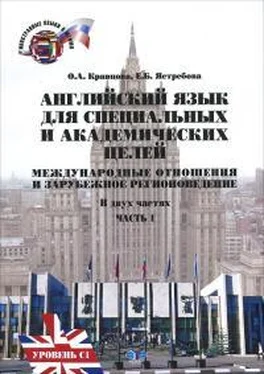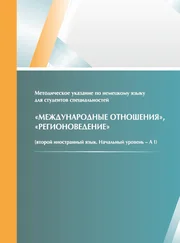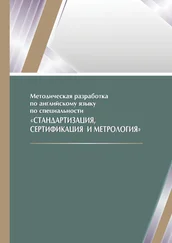Unit I. UK: from Empire to Democracy
Unit I. UK: from Empire to Democracy
Second, no similar effort materialised in that other great area of British inequality: education. The situation here was the same as in health care, or worse. A minority of children, here a small minority, the children of the rich, had access to excellent schooling in private schools behind a wall of high fees, while the majority of children languished in second-rate, underfunded and underperforming public schools. It is conspicuous that British democracy, at the time when the need to follow through from rights to resources was so well understood in health care, was unable to mobilise the same understanding and resolve in education. As a result, the British school system remains to this day deeply undemocratic and school policy limited to perpetual tinkering with the public sector with no inclination or ability to break down the inequality of the private-public division.
Third, in spite of impressive welfare state reforms the system that emerged proved incapable of affording the population that most basic of democratic protections: protection against poverty. Poverty rates in Britain, both among the elderly and among children, have remained high. It was thought that the post-1945 welfare reforms would finally overcome poverty. When that anticipation failed, British democracy, instead of reforming again, settled down to an embarrassing acceptance of persistent poverty among affluence. It is a matter of record that poverty rates in Britain were exceptionally high by European comparison all through the second half of the twentieth century. It is the proud boast of the present government that it is on the path to abolishing poverty, at least among children, but that boast is premature. It is trying to do so with the help of carefully engineered means-tested benefits 13 13 A means-tested benefit in the United Kingdom is a payment available to people who can demonstrate that their income and capital are below specified limits. It is a central part of the Welfare state in the United Kingdom.
. We have enough knowledge from social policy theory to say that this strategy can reduce poverty, which it is indeed doing, but that it cannot eradicate it, that it is arbitrary in its effects because it is never target efficient — as was put dramatically on display by the Parliamentary Ombudsman in the scandal of out-of-control overpayments and underpayments of tax credits in Britain in 2004-5 — and that it comes at the price of indignities and harassments reminiscent of the old poor-law regime. In the best European welfare states poverty has been eradicated — so we know it can be done. But British democracy remains on the defensive in poor relief because it has been unable to mobilise the resolve and resources to put itself on the offensive.
These are examples of the democratic deficit in British governance: its potential is not realised in delivery. British democracy should do better but there is not enough force in the system to carry through to the difficult matter of delivering protections in all relevant forms to all citizens.
The democratic deficit is understood and recognised in the population. Voting participation is low and falling, in particular in local elections. Membership in political parties is in free fall. Confidence in the democratic institutions is low and falling, as is documented in repeated British and comparative value surveys. So low is now confidence in democracy that in spite of local democracy having been all but killed off — and in spite of citizens being far more interested in local than in national issues — there appears to be little or no demand or appetite in the population for this crucial building block in the democratic architecture to be restored.
Political commentators sometimes suggest that trends towards disenchantment with politics are evidence of “new values”, such as individualism or post-materialism. But there is little evidence in favour of that interpretation. Democratic values are adhered to as strongly as ever. Where the matter has been examined, from Costa Rica to Norway, citizens are better informed about political and social issues and as interested as ever. They are not turning “apolitical” but they are becoming more critical. If interested and informed citizens are more critical it is not because they are ignorant or indifferent, it is because they are making judgements. Their critical judgements come from their experience of shortcomings in the democracies they value. It is no good blaming citizens; they are good enough. There is a crisis of trust across the democratic world, but not because citizens are abandoning established values or in other ways failing. Citizens do trust less, but not because they are becoming less trusting. They trust less because their democracies are less worthy of trust.
Where to reform
In the British case two reforms present themselves as particularly urgent, both now under debate high up on the political agenda.
First, there is a need to re-invent local democracy. Devolution is well and good but does not reach local democracy and could contribute to further weakening it. What is needed is what a Smith Institute study calls double devolution, not only to regions but also to proper local units. Britain needs more and smaller local political entities — municipalities — with more decentralised responsibility and authority. British democracy needs many more elected politicians to represent citizens' interests. There are possibly too many members of Parliament but certainly too few elected politicians locally. This is a big order, a matter of reinvention. As it is now, Britain does not have proper local units to devolve democracy to.
Second, political parties should be freed from dependency on big money and made answerable to members. It is time to put a full stop to all private donations to political parties and campaigns — from individuals, from businesses, from unions, even from candidates' own pockets — and make political parties economically dependent on members. It is not enough to make political donations “transparent”; it's too late. Nor is it enough to limit the size of donations, for example to £50 000 as has been suggested. The narcotic of free money has numbed political sensitivities. Here, now, today — in fact and not only possibly in the future — the political use of money is destroying the people's democracy, in Britain near as much as in the United States. Democracy does not need mega-expensive politics. The money that circulates ends up in the pockets of advertisers, consultants, pollsters and advisors represents a gigantic subsidy to a class of political hangers-on. Professional politics is top-down politics and contributes to increasing the distance between citizens and their representatives. It would improve democracy if political budgets were cut and members given power in parties. There are no compelling reasons why rich individuals, businesses and organisations should be allowed to use their wealth to undermine the protection ordinary people should have from democratic governments.
These reforms are practical and doable. They are issues under consideration and firmly established on the political agenda. British democracy has much going for it and should do better. These two reforms would revitalise British democracy, infuse it with citizenship pressure for performance and lift it from mediocre to high quality.
Notes
1. The 1942 report on Social Insurance and Allied Services, known commonly as the Beveridge Report was an influential document in the founding of the welfare state in the United Kingdom, published in December 1942. It was chaired by William Beveridge, an economist, who identified five “Giant Evils” in society: squalor, ignorance, want, idleness, and disease, and went on to propose widespread reform to the system of social welfare to address these. The Report
Читать дальше












